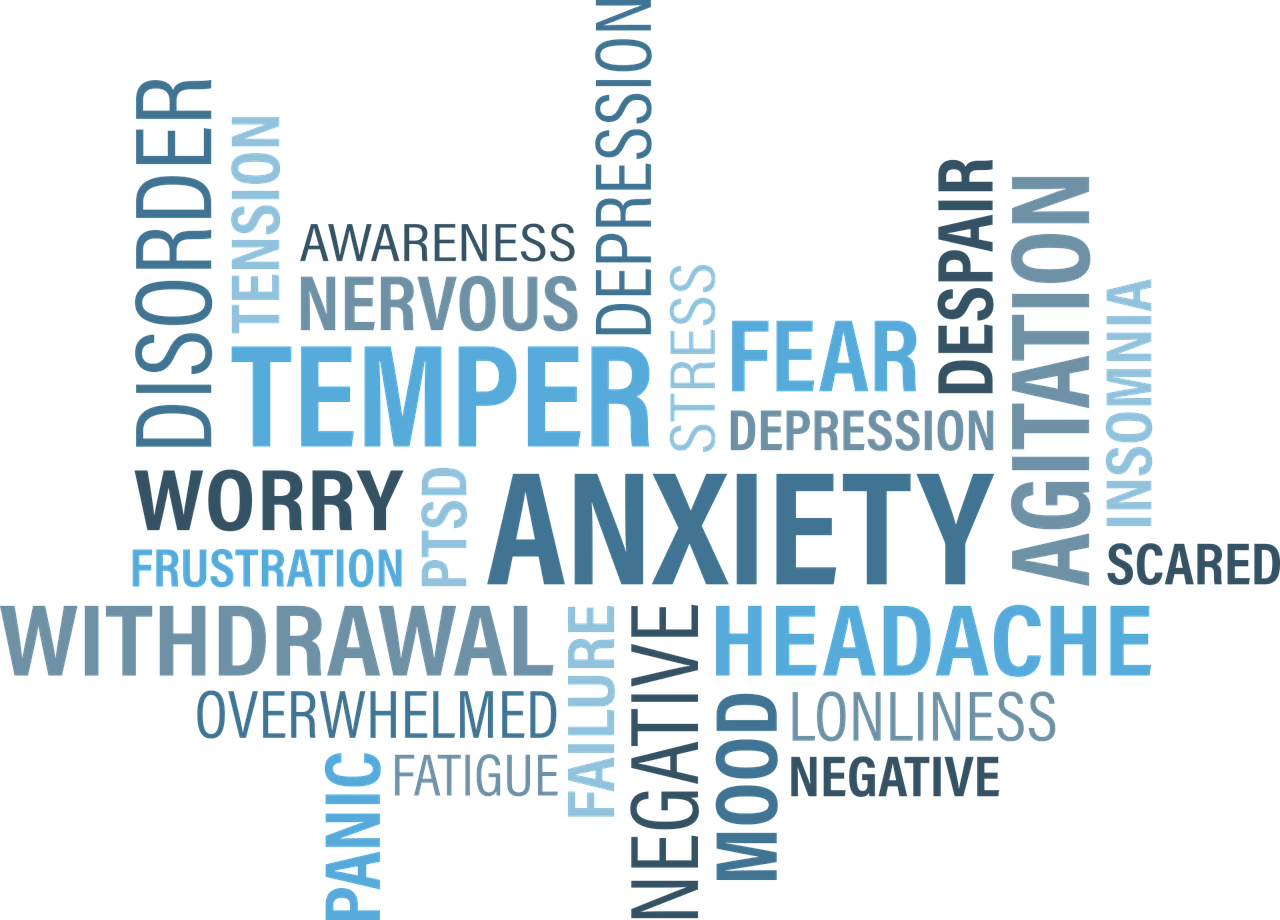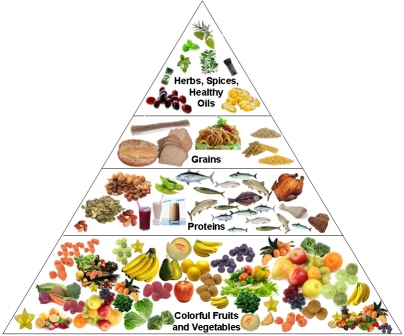Dealing with Stress, Anxiety and Anxiety Disorder in Pandemic part II
In the last article, I talked about stress and anxiety. In summary, stress is a means by which human try to deal with threats that appear from the physical world. No one is expected to stay stressed for a long time. In other words, there is an expiration time for stress. I also stated there that stress hormone called cortisol help to combat the situation and after the emergency situation has subsided, the stress response system ends its work and everything comes back to normalcy. While anxiety is known to be characterized with prolonged tension, worry, fear, imagination of what is not real. In other word, anxiety is from within and can be as a reflection of past experience.

As earlier indicated, stress could be positive or negative. Positive when what stresses you is just to meet a demand at work or address a large crowd or you see what you do not expect at a location, the stress response system quickly help you to overcome such a short-term stress. However, when the stressor is negative like losing a job, receiving a pay cut, or a loved one is in a serious medical condition and there isn’t enough to take care of such, or when the stress experienced become chronic, the biological response of the body to deal with the crisis can lead to more serious mental, physical health challenges.
Chronic stress.
It's not really good for mental and physical health when the stress response system stay awake, the system needs to be shut down and be activated only when you're faced with a daring situation. Repeated exposure to stress that keep your stress hormone to be continuously triggered is a chronic form of stress and I tell you it's not good at all. Body and mind will suffer for it. Body system functions misbehave when the stress response alarm refuses to shut down. This has been attributed to heart disease, high cholesterol, high blood pressure, depression, diabetes, we can just continue to mention them on and on. Those folks with family history of any of the aforementioned ailment might be at higher risk of having them when they experienced chronic stress. Those on unhealthy lifestyles aren't left behind. Just imagine an alarm that should just ring once and subsides in the middle of the night just wouldn't stop, it will wake up the entire neighborhood and that could be chaotic. The alarm was supposed make you awake and get a job done, but no it wouldn't just stop even after it has accomplished the purpose while it was set.
 )
)
the-falling-domino-principle public domain pictures
The stress response system is activated to make you respond to an emergency, so it increase your heart rate, blood sugar levels, blood pressure, and decrease immune system. If the alarm refuses to stop, the blood sugar level, blood pressure and heart rate are kept on flight mode!!!. What chronic stress does is to make the body system to go out of control. This can be best explain as a domino effect in which the fall of the first card leads to the fall of the rest cards!!!.
The culprit here is cortisol. Its secretion in response to stress is good for the short term being, but becomes dangerous to the body in excess. Cortisol is the main hormone in the group of steroids hormones known as Glucocorticoid. These group of hormone are responsible to metabolise Carbohydrates, protein, and fat. They are also responsible for anti-inflammatory activities. As earlier been stated, the continuous activation of the stress-response system leads to high level of the stress hormone and it is believed to be one of the main factor among others that is responsible for the occurrence of type II diabetes. The release of the hormone leads to gluconeogenesis which is mainly to increase the amount of blood glucose, this I have mentioned several times. It also ensure that metabolism of fat is done and influence the amount of electrolytes present in the body. The action also include the decrease in the formation of bones in the body. Cortisol presence influences the amount of electrolytes in the body by increasing the amount of sodium in the body. How it does this is by acting as an inhibitor to the loss of this mineral from the small intestine. That process is called
hypernatraemia. It is also responsible for the loss of potassium through the intestine a process known as Hypokalaemia , it is the extreme way of losing potassium in the body. Loss of potassium or inadequate intake of this mineral could result in muscle cramp, abnormal heartbeat and fatigue. Imbalance in the amount of electrolytes is common with diabetic type II patients and research has established it.
Type II diabetes and many other medical conditions as earlier mentioned are consequenceS of chronic stress. Never should you underestimate stress.Let's consider some of the methods of combating chronic stress.
Dealing with stress
The good news is that there is an arsenal of treatment available that can be very useful to overcome the negative effect of stress.
Get rid of the stressors:
It is good for you to know what stress you. Your perception of situation is very important here. Two people can't respond to a situation same way, it all depend on your perception of things. Your perception play a big role on how you respond. In this time of covid-19, if your attention is on daily report of the infection, i.e number of those infected and death recorded daily, you might continue to stress yourself. Maybe you should just give yourself a break from listening to breaking news on covid-19.
Mix up with friends.
Staying lonely is never the best way to handle stress and anxiety. Socializing can be of a great help. Look for those that will make you forget about the stressor. Support you received from loved ones will help.
Go for good nutrition.
In other to deal with stress, adrenaline and cortisol are released from the adrenal gland. High level of cortisol in the body can make you to begin to crave for junks. The reason being that when you are stressed, cortisol stimulate the metabolism of carbohydrates and fat in other to make glucose available.
 )
)CC BY 3.0 commons.wikimedia Nutrition-pyramid
The presence of the stress hormone make people to have less appetite for healthy food except for sugar rich food. The effect of that is increase in body fat around the waistline. This can leads to cardiovascular disease. Eat vegetables and lot of fruits. Don't try alcohol it makes matter worse.
Engaged in physical exercise.
30 minutes walk can do you good. Researchers came up with evidences that those who engaged themselves in physical activities daily halve perceived stress compared to those who do not. As simple as physical activities may sound, it put off negative impact that stress may have on immune system.
Get your muscles relax.
Anxiety and mental health generally are reduced when you go for a warm bath, massage and stretches. Getting good professional to practice muscle relaxation is very good at making feel good. Muscles get relax when you start from the lower part of the body and work it up. Get help from professional to help you out.
Meditation
Engaging your mind in meditation help to set aside psychological stress as well as anxiety. In meditation, you isolate yourself from distraction and remain focus on the present moment. Keep your mind off intrusive thoughts. Researchers through the use of functional magnetic resonance imaging(FMRI) were able to study impact of consistent mindfulness on the activities of the brain.
 )
)needpix.com meditation-mindfulness
The machine capture images of the activities going on the brain of subjects for specified time. They were able to show activation patterns of the brain of those subject before and after meditation for months. Their findings was amazing. They show that brain activity of those who practice meditation was steady during their normal day activities and not while meditating. The research focus on amygdala. Although mindfulness meditation is not yet for everyone to combat psychological stress and anxiety, but it has been established to work among some people. You know anyone depressed, meditation might be helpful says psychologist.
Sleep well.
Stress in the day can impair your sound sleep at night. If you like taking alcohol or caffeine which are stimulants late in the afternoon might affect your sleep in the night. Working late into the night with your screen facing you can suppress secretion of melatonin an hormone secreted from the pineal gland to regulate sleeping. In the dark, the hormone is secreted so if you want to sleep well in the night you may need to turn off your computer screen.
Keep your pleasurable activities alive.
Doing what will make you feel happy is highly recommended. Maybe you watch movie that promote humor, listening to music, going out and take in some fresh air can go along way. You should not try to be too harsh on yourself. Do what makes you laugh and happy. You can get out of that cage by simply engaging yourself in what gives you pleasure.
If after going through some of the above ways of managing stress and you feel like nothing really change, its high time you visit a psychologist. If you are sure that either stress or anxiety are affecting your daily mood, a mental health official can further determine through series of examination to determine you have anxiety disorder. Anxiety disorder is the next lap to be discussed next time. Thanks for reading
.
References
https://www.apa.org/topics/mindfulness-meditation
https://www.nccih.nih.gov/health/melatonin-what-you-need-to-know
https://www.apa.org/topics/stress-tips
https://link.springer.com/article/10.1007/s00217-016-2772-3
https://www.intechopen.com/books/new-insights-into-anxiety-disorders/anxiety-an-adaptive-emotion
https://www.anxiety.org/what-is-anxiety
https://thriva.co/hub/mental-health/what-are-the-signs-of-high-cortisol
Greetings!
😎
Upvoted 👌 (Mana: 1/32)
Thanks for your contribution to the STEMsocial community. Feel free to join us on discord to get to know the rest of us!
Please consider supporting our funding proposal, approving our witness (@stem.witness) or delegating to the @stemsocial account (for some ROI).
Thanks for using the STEMsocial app and including @stemsocial as a beneficiary, which give you stronger support.
Excellent descriptive content on stress. In my case, one way that I managed to avoid being affected by situations that generate stress in this context of pandemic, is to adapt to this new lifestyle, very different from the professional and work habit I had, in these days of confinement I usually go out Twice a week in the morning, in the afternoons I tend a garden that I decided to establish with the help of my eldest daughter (9 years old), and at night I am reading a little, I used to do it but as I arrived exhausted I did not read with the same attention that now I do now.
Thanks @steep2308 for sharing this content.
I am glad that you are doing great to keep your mind healthy and free from stress.Our lifestyle is very important. Thanks for your kind words @lupafilotaxia